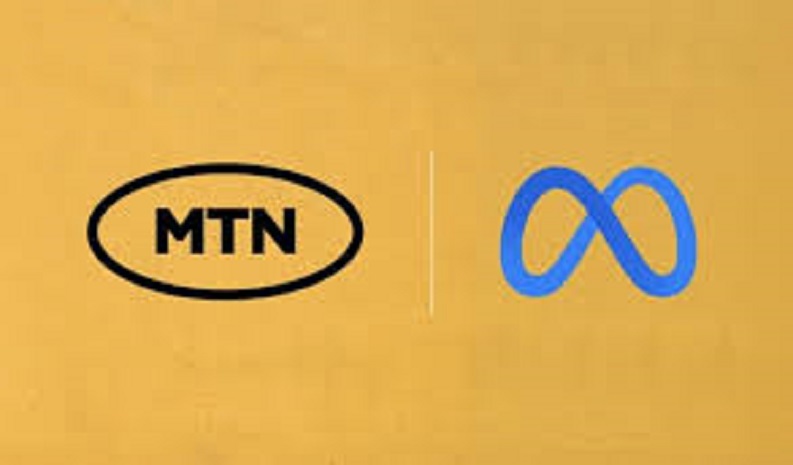Telecom
TCN Boss Risks Jail for Shutting Down Phase 3 Telecom Plants

High Court of the Federal Capital Territory has ordered Mr Usman Gur Mohammed, managing director of the Transmission Company of Nigeria (TCN), to appear before it and explain why he should not be committed to prison for disobeying its order restraining them from shutting down the plants and machinery of Phase3 Telecom Limited.
The court had on May 28, 2018 restrained TCN from shutting down the plants and instruments of the independent fibre optic infrastructure and telecommunications services provider pending the hearing and determination of the suit filed by the telecom firm.
The court also stopped Mohammed from acting on the letter by TCN dated August 30, 2017, purportedly terminating the agreement between it and Phase3 Telecom on March 20, 2006 to design, build, finance and operate the Fibre Optic Telecommunications Infrastructure (Phase3 Concession agreement) pending the determination of the suit.
The Abuja High Court on Friday August 16, 2019 gave an order granting leave to Phase3 Telecom to effect service of form 49 (notice to show cause why order no: R/N 11623088 and 11623089 should not be made) on TCN and its MD, Mohammed who are being sought to be committed to prison for contempt by substituted means.
The court ordered that the applicant should serve Mohammed and TCN the committal to prison notice by pasting the processes at the head office of TCN at Plot 441 Zambezi Crescent, Maitama, Abuja and by publishing same as advert in LEADERSHIP Newspaper or THISDAY Newspaper respectively.
The court adjourned the matter to September 5, 2019.
Recall that the TCN had on March 20, 2006 signed an agreement with Phase3 to design, build, finance and operate the fibre optical cable telecommunication infrastructure.
But in a letter dated August 30, 2017 and addressed to the management of Phase3 Telecom Limited, the TCN cancelled the agreement, citing breach of contract terms.
Phase3 Telecom Limited had repeatedly denied the alleged breach of the agreement terms, insisting on the ownership of the fibre optic infrastructure.
He said despite inheriting a non-existent fiber optic network from TCN, the concessionaires have deployed a total of over 3000km and installed state-of-art fiber optic equipment, expending more than $100million as capital and operating expenditure on building the infrastructure.
Phase3 Telecom said TCN continued to make all the unfounded allegations in an attempt to resist the harmonisation of right of way charges for deployment of fiber optic cables as agreed and communicated by the National Economic Council (NEC) towards affordable broadband services in the country.
Regulators and industry experts have said this runs contrary to the efforts of the federal government aimed at providing the enabling environment for private sector investments .to grow the economy.
Telecom
MTN, Meta Partner to Enhance Voice and Video Calling Quality

MTN Group, Africa’s leading telecommunications provider, has joined forces with Meta to improve the quality and reliability of voice and video calls on real-time calling applications such as WhatsApp across 12 MTN markets.

The collaboration, which began at the Mobile World Congress (MWC) 2024, focuses on optimizing application-aware networks and network-aware applications to deliver a seamless and high-quality user experience. By leveraging data analytics and conducting comprehensive testing, MTN and Meta have successfully developed solutions that enhance the interaction between mobile networks and real-time calling applications.
Nigeria, MTN’s largest market, was the first to implement these enhancements. Early results indicate a remarkable 50% improvement in key performance indicators (KPIs), significantly enhancing the user experience for MTN Nigeria mobile users.
“This implementation further demonstrates our commitment to enhancing our customers’ digital experience.
“We’re pleased with the remarkable improvement in our real-time communication services, reflecting our commitment to innovative customer solutions,” said Yahaya Ibrahim, Chief Technology Officer (CTO) at MTN Nigeria.
Diego Marí, Head of Network Ecosystems Engineering at Meta, added, “The collaboration allows us to deploy advanced solutions for an unparalleled real-time experience in Nigeria and showcases our dedication to elevating service quality and improving user experience, while striving for continued efficiency in traffic delivery.”
The partnership underscores MTN and Meta’s shared vision of delivering cutting-edge solutions to enhance digital communication across Africa.
Telecom
MTN Plans Second Public Offer in Nigeria

Ralph Mupita, president,MTN Group, has announced plans to reduce its shareholding in MTN Nigeria through a public offer after it returns to profitability.

The group aims to cut its stake from 76 percent to 65 percent in line with its longstanding commitment to deepen local ownership, according to ITWeb, South African tech publication.
Mupita, who disclosed the plan during an editors’ roundtable meeting this week, said “The only localisation we have as MTN Group is we have potentially a sell-down in Nigeria at some point in time, approximately 11 percent. This is something we have said long ago, that over time, we would want more Nigerians owning the company, and we are prepared to sell down to 65 percent. We are at around 76 percent,” he said.
The anticipated offer would mark MTN’s second major retail public offering in Nigeria, following its 2021 sale of 575 million MTN Nigeria shares to local investors.
That offer was oversubscribed, resulting in the allocation of 661.25 million shares, including a 15 percent greenshoe option. This reduced MTN’s stake in its Nigerian unit to 75.6 percent from 78.8 percent.
More than 126,000 investors participated in that round, including retail and institutional investors such as Nigerian pension funds, representing approximately 6.5 million contributors.
At the time in 2022, MTN Group announced plans to further reduce its stake to approximately 65 percent from 75.6 percent.
Mupita confirmed that the Group would only proceed with a new offer once MTN Nigeria resolves its negative equity position and resumes dividend payments.
Currently, MTN Nigeria’s shares are trading at N235 per share.
Despite reporting a revenue of N3.36 trillion in 2024, a 36.03 percent bump from N2.47 trillion in 2023, it posted a loss after tax of N400.44 billion, a 192.25 percent rise from N137.02 billion in 2023.,
This negative performance was driven by macroeconomic headwinds, including record inflation and a steep devaluation of the naira, which raised operating costs and wiped out investor value.
MTN Nigeria has fallen behind MTN South Africa as MTN Group’s largest revenue contributor.
However, the Group is projecting a rebound in 2025, citing key drivers such as recent tariff adjustments, operational restructuring, and improving macroeconomic indicators in Nigeria.
Speaking at the roundtable, Mupita highlighted that the Group is anticipating a V-shaped recovery in Nigeria’s service revenue. He pointed to the recent structural reforms, such as the removal of fuel subsidies, the naira stabilisation, and improved dollar availability.
“The continued normalisation of these factors, particularly naira stability, should have positive impacts on consumer spending power and our business operations,” Mupita noted in the Group’s financial statement for 2024 recently.
Telecom
MTN Staff Commission New Set of Classrooms at Iwerekun Community High School

In a remarkable demonstration of corporate volunteerism, MTN staff, through the Y’ello Care initiative, have renovated a school block at Iwerekun Community Senior High School, Lakowe. This effort has restored hope and significantly improved learning conditions for both students and teachers.

The project, led by dedicated MTN employees, is part of the annual Y’ello Care campaign, which focuses on empowering communities through education, digital inclusion, and economic support.
Prior to the renovation, students at Iwerekun Community Senior High School faced challenges, including deteriorating classrooms that hindered effective learning. Recognising the need for intervention, MTN staff stepped in to transform the learning space, creating a safe, conducive, and inspiring environment for both students and teachers.
At the commissioning ceremony, Honourable Jamiu Tolani Alli-Balogun, Commissioner of the Lagos State Ministry of Basic and Secondary Education, acknowledged the significance of MTN’s contribution to education: “The education sector worldwide thrives on collaboration and commitment between public and private partners. MTN’s generous contribution is truly recognised, and I express my deepest gratitude for its unwavering commitment to supporting education in Lagos State. This new facility will provide a conducive environment for teaching and learning, enabling our students to reach their full potential.”
Representing the Ojomu of Lakowe, Prince Mukaila Adeola expressed the community’s gratitude: “This is a rare opportunity, and it is not every day that Lakowe benefits from such support. We truly appreciate MTN for this contribution, and we look forward to even more support in the future.”
The renovated school block is equipped with improved water supply and an inverter included in a serene environment that enhances the learning experience. This renovation will ensure that students and teachers have a more comfortable and sustainable academic setting.
Speaking on the significance of the project, Tobe Okigbo, Chief Corporate Services and Sustainability Officer (CCSSO) at MTN Nigeria, emphasised the personal investment of MTN staff: “I want to emphasise that this commissioning was made possible by the dedicated staff of MTN. Although MTN has a Foundation funded by 1% of the company’s annual profits, the credit for this commissioning goes to the MTN Nigeria staff members who, through their personal contributions, made this happen.”
Beyond the fresh coat of paint and structural improvements, initiatives like this create a lasting impact and a sense of hope in the lives of the students. The addition of a reliable power source and water facility means that students no longer have to struggle with poor infrastructure, allowing them to focus on their education.
For many students, access to quality education remains a challenge—not just because of financial barriers but also due to poor infrastructure, lack of resources, and limited teacher support. Programmes like Y’ello Care, alongside other education-focused volunteer initiatives, are helping to fill these gaps by creating safe, well-equipped learning environments and equipping students with knowledge beyond the classroom.
With the successful completion of the Lakowe school project, MTN reaffirms its commitment to education and youth development. The company encourages more organisations to embrace volunteerism and community service, as collective action remains a powerful force for societal progress.

 E-Business1 day ago
E-Business1 day agoNITDA Warns Against Fake Google Play Store

 News1 day ago
News1 day agoNOA Uncovers Fraud by Banks, Universities in Students Loan Scheme

 E-Financial1 day ago
E-Financial1 day agoAfrica Loses $88.6Bn Yearly to Corruption- ECOWAS

 E-Financial1 day ago
E-Financial1 day agoUBA Redefines Banking with Next-Gen PoS Terminals and Revamped MONI App

 General News1 day ago
General News1 day agoLagos Commences Integration of NIN with State Single Social Register

 E-Financial1 day ago
E-Financial1 day agoNIBSS Heads to Court to Recover N4Bn Lost due to System Glitch

 E-Financial1 day ago
E-Financial1 day agoSEC Bans Unregistered Digital Asset Exchanges, Online Forex Platforms

 General News1 day ago
General News1 day agoNigeria Records $6.83Bn Balance of Payments Surplus in 2024 Amid Economic Reforms



























